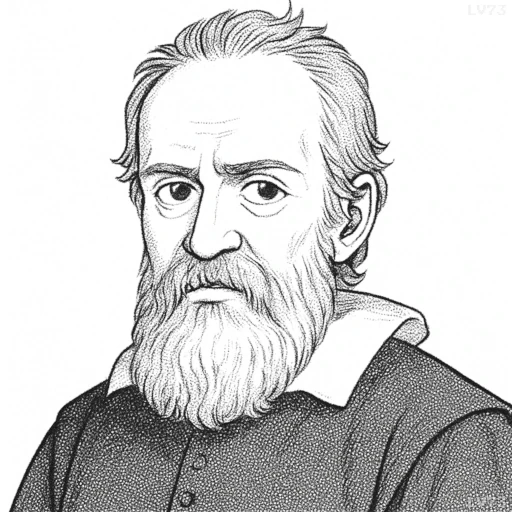“I give infinite thanks to God, who has been pleased to make me the first observer of marvelous things.”

- February 1564 – January 8, 1642
- From the Duchy of Florence (Italy)
- Physicist, astronomer, mathematician
table of contents
Quote
“I give infinite thanks to God, who has been pleased to make me the first observer of marvelous things.”
Explanation
In this quote, Galileo expresses humility and gratitude for the opportunity to be the first to observe and discover the natural wonders of the universe. Despite his monumental contributions to science, Galileo attributes his ability to uncover marvelous truths not to his own greatness but to the grace of God. This reflects his belief that his scientific endeavors were part of a greater divine plan, and that the ability to observe the world in such detail was a gift. For Galileo, the discoveries he made—such as the moons of Jupiter and the phases of Venus—were not only scientific milestones but also a way to reveal the wonders of God’s creation. His reverence for the natural world was deeply intertwined with his faith, seeing science as a way to understand divine order.
This quote can be interpreted in the context of faith and science in the modern world. Galileo’s approach challenges the common misconception that faith and science are incompatible. Today, many scientists and thinkers continue to see their work as a way to explore and appreciate the natural world, viewing their discoveries as a form of spiritual expression. For instance, astronomers who explore the vastness of space often speak of their awe and wonder, seeing the cosmos not just as a collection of physical phenomena but as an expression of something greater. Galileo’s words serve as a reminder that science and spirituality need not be seen as opposing forces, but can be complementary avenues of understanding.
The quote also speaks to the concept of humility in discovery. Galileo was a man of great intellect, yet he acknowledged that his role as an observer was one of privilege and gratitude. This serves as a lesson for modern scientists, reminding us that the pursuit of knowledge is not just about personal achievement but also about recognizing the vastness of the unknown and being grateful for the opportunity to contribute to human understanding. Whether in the fields of medicine, technology, or environmental science, Galileo’s words encourage us to approach discovery with a sense of wonder and humility, recognizing that the mysteries of the world are marvelous and that our role is to explore them, not claim them as solely our own.
Would you like to share your impressions or related stories about this quote in the comments section?

